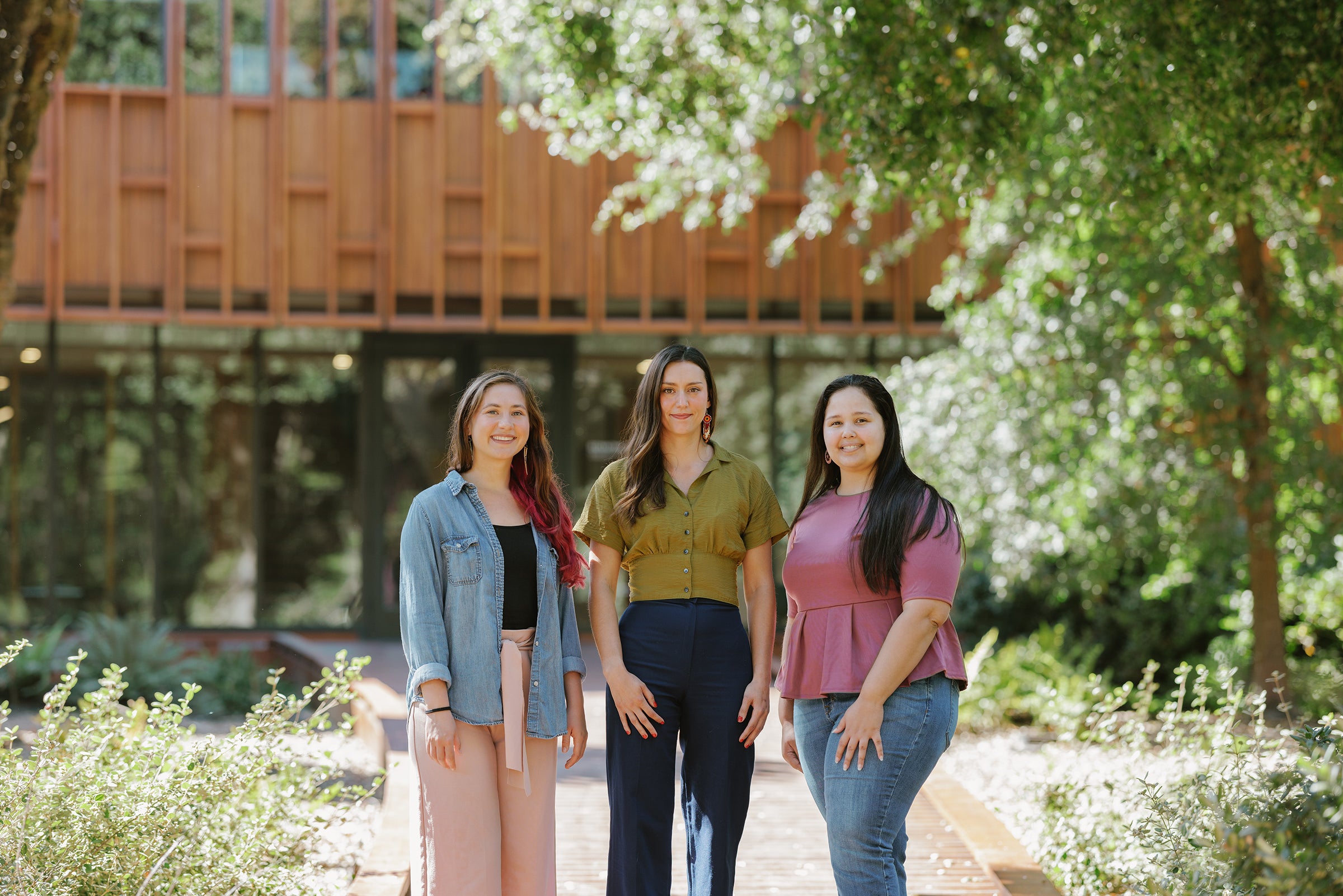Meet three Knight-Hennessy scholars pursuing projects with impact
Three Stanford graduate students and Knight-Hennessy scholars are using their fellowship to support Native and Indigenous communities, both on and off campus.
When students arrive at a university to begin their studies, one indicator of their success is often how connected they feel to their campuses. Stanford graduate student and Knight-Hennessy scholar Jasmyn Burdsall said this is particularly true of underrepresented students, like those from Native and Indigenous communities.
“Research shows us that the more access to indigenized spaces that Native students have, the better their educational and mental health outcomes are,” Burdsall said, adding that they are more likely to finish their degrees and have lower incidences of anxiety and depression.
Last year, Burdsall and fellow Stanford graduate students and Knight-Hennessy scholars Carson Smith and Karli Moore formed the Native American Graduate Student Wellness Coalition, a KHeystone project at Knight-Hennessy Scholars that focuses on improving wellness for Native graduate students at Stanford. Its goal is to better understand that population and support their degree progress and overall well-being by connecting them to resources and an on-campus community.
Smith said that Stanford’s undergraduate Native community is relatively large and well supported, in part because the undergraduate experience is more centralized. But with graduate admissions and study taking place at the departmental level and some graduate students living off campus, it can be difficult to reach and convene them.
“Graduate students might not even know that there’s a Native graduate community that they can plug into,” Smith said. “This project is a way of getting everybody together.”
Project initiatives include developing a toolkit to help make admissions for prospective Native students more equitable, identifying the number of Native Stanford students, hosting events like presentations by wellness professionals, and organizing social opportunities like dinners, beading circles, and the first Native graduate student retreat this winter. The project is supported by close partnerships with other students, the Native American Cultural Center, and Knight-Hennessy Scholars.
“We are so inspired by the work that Carson, Jasmyn, and Karli are doing to support Indigenous communities,” said Tina Seelig, Knight-Hennessy Scholars executive director. “Their projects have a profound impact on the entire KHS community by exposing our scholars to issues faced by Indigenous groups that they might never have known about otherwise. This is true with so many members of our highly diverse community, who provide a wealth of perspectives on the world.”
With backgrounds in medicine, law, and environmental science, Burdsall, Smith, and Moore are uniquely qualified to improve the Native graduate student experience on campus. However, their efforts to support Native communities are not limited to Stanford.
Here’s a closer look at how their individual scholarship is helping provide solutions to challenges related to food security, safety, conflict resolution, and health in Indigenous communities.
